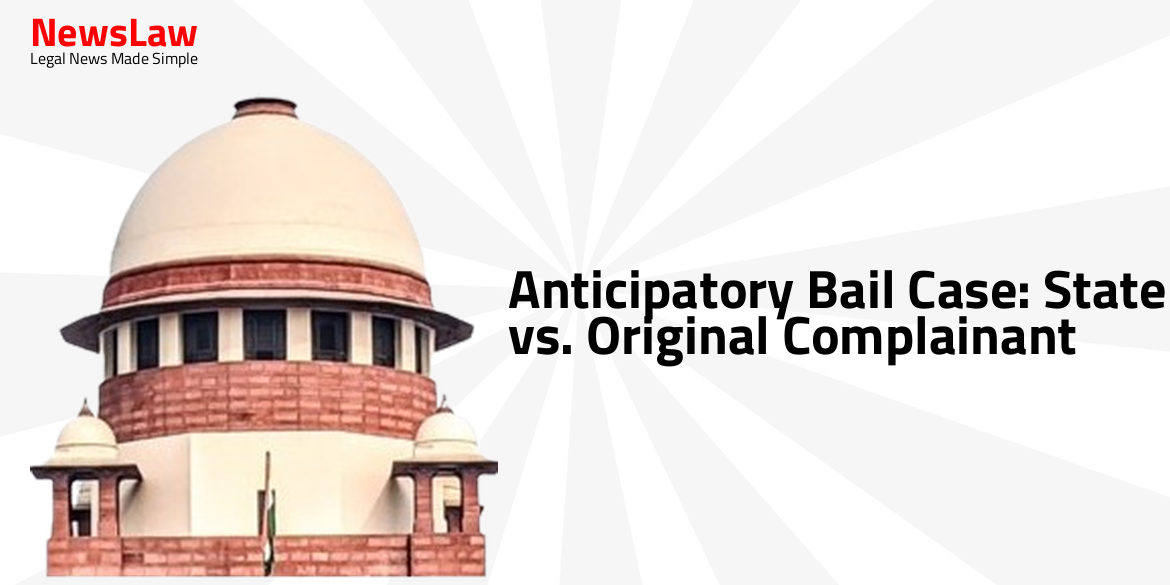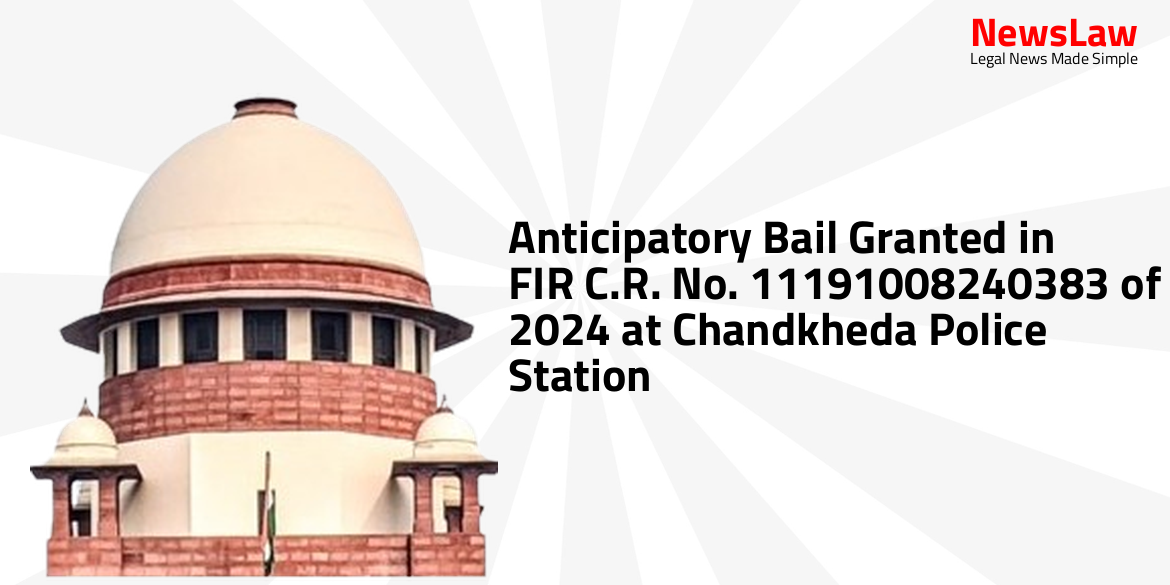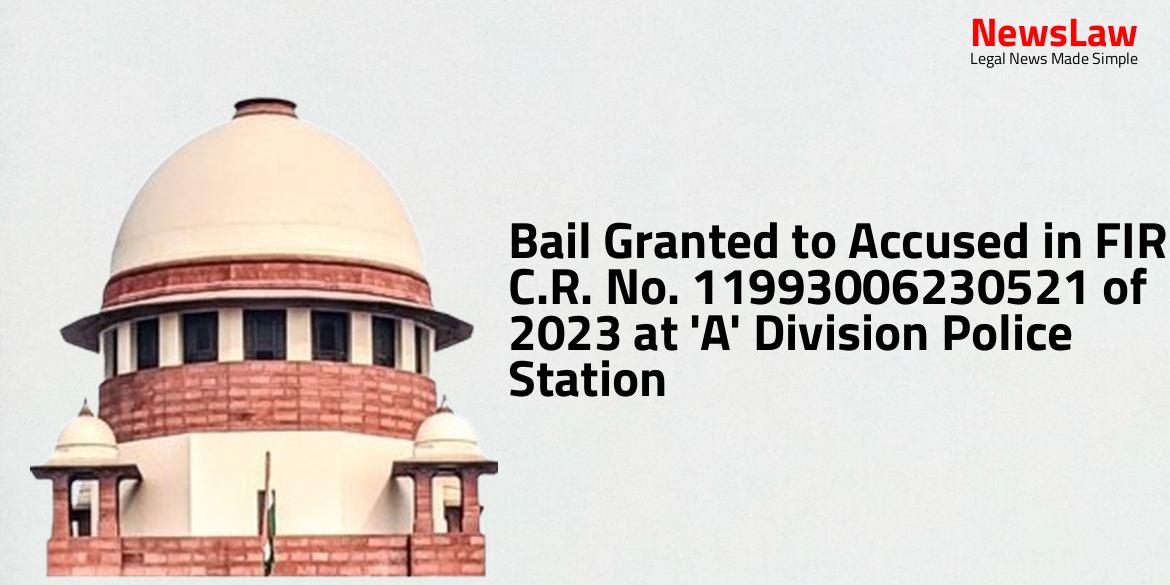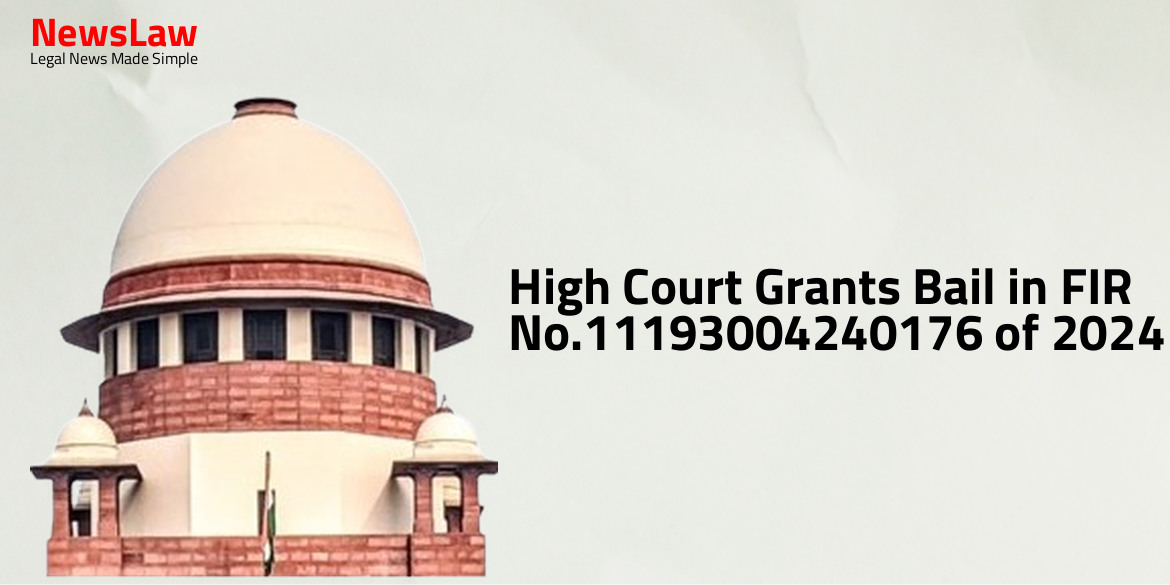In a recent judgment by the Gujarat High Court, a significant legal ruling was made regarding the grant of anticipatory bail in a case between the State and the original complainant. The case involved various sections of the Indian Penal Code and the Scheduled Castes and Scheduled Tribes (Prevention of Atrocity) Act. The court carefully examined the nature of allegations and the role attributed to the accused, considering the unique circumstances of the case.
Facts
- Mr. Jay Mehta, learned APP waives service of notice of Rule on behalf of the respondent State.
- Learned advocate Mr. Dadhichi Limbola waives service of notice of Rule on behalf of the original complainant.
- The appeal is filed under Section 14 (A)(2) of the Scheduled Castes and Scheduled Tribes (Prevention of Atrocity) Act.
- The applicant accused has prayed for release on anticipatory bail in case of arrest in connection with FIR C.R.No.11203030240228 of 2024 with Keshod Police Station, Junagadh.
- The offenses mentioned in the FIR are punishable under Sections 323, 506(B), 294(B), and 114 of the Indian Penal Code, Section 3(2) VA, 3(1)(r), and 3(1)S of the Scheduled Castes and Scheduled Tribes (Prevention of Atrocity) Act.
Arguments
- Learned Additional Public Prosecutor opposing grant of anticipatory bail
- Nature and gravity of the offence considered
- Applicant’s advocate submitting for anticipatory bail with suitable conditions
- Nature of allegations and role attributed to the applicant taken into account
- The learned advocate for the original complainant argues that the applicant was a significant part of the conspiracy from the beginning and used abusive language against the complainant.
- The court notes that the role of the applicant is distinct from the other co-accused who have been granted bail.
- Specific allegations under the Atrocity Act are mentioned against the other co-accused, but not against the present applicant.
- Given the nature of allegations, gravity of offenses, and the role attributed to the accused, it is observed that the applicant’s role is different.
- The applicant, being a female accused, is considered separately from the other co-accused.
Analysis
- The ratio of the judgement is based on the interpretation of a specific legal principle or rule.
- It provides a clear guideline for future cases with similar facts or issues.
- The ratio establishes a precedent that must be followed by lower courts in similar cases.
- The principle of granting anticipatory bail is to protect the accused from unjust arrest.
- The granting of anticipatory bail should not be limited by strict conditions. Instead, it should be granted based on the individual facts and circumstances of each case.
- Section 438 of the CrPC confers special powers to grant anticipatory bail.
- The law laid down by the Hon’ble Apex Court in the case of Siddharam Satlingappa Mhetre Vs. State of Maharashtra and Ors. reinforces the importance of protecting the accused from unjust arrest.
- The decision in Shri Gurubaksh Singh Sibbia & Ors. Vs. State of Punjab by the Constitution Bench is a significant precedent in anticipatory bail matters.
Decision
- The applicant has been ordered to be released on bail upon execution of a personal bond of Rs.10,000/- with one surety of like amount.
- Conditions for bail include cooperating with the investigation, being available for interrogation, and appearing at the concerned Police Station on a specified date and time.
- The applicant is prohibited from influencing individuals involved in the case, obstructing the police investigation, or tampering with collected evidence.
- The applicant must provide their address to the investigating officer and the court, and cannot change residences without informing until the case is disposed of.
- Permission is required from the trial court to leave India, and if in possession of a passport, it must be deposited before the trial court within a week.
- The Trial Court is instructed not to be swayed by prima facie observations made by this High Court during the bail grant.
Case Title: RITABEN GOVINDBHAI CHANDERA Vs. STATE OF GUJARAT
Case Number: R/CR.A/989/2024



